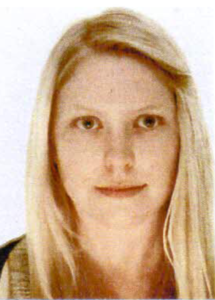 In 2000 the Direct Provision scheme was officially introduced by the Irish government. The scheme requires asylum seekers to live in designated accommodation centres while they await decisions on their application for refugee or humanitarian leave to remain in Ireland. Initially, it was expected that the maximum time spent in Direct Provision would be six months. Unfortunately, the average stay is currently estimated to be four years.
In 2000 the Direct Provision scheme was officially introduced by the Irish government. The scheme requires asylum seekers to live in designated accommodation centres while they await decisions on their application for refugee or humanitarian leave to remain in Ireland. Initially, it was expected that the maximum time spent in Direct Provision would be six months. Unfortunately, the average stay is currently estimated to be four years.
According to the Reception and Integration Agency, 2015 was marked by an increase in the number of people housed in Direct Provision, from 4364 in 2014 to 4696 in 2015. Almost a quarter (1172) of these people were underage residents in 2015.
The people waiting to hear their fate under this scheme (tired, perhaps grieving those left behind, and often battling post traumatic stress) will probably be housed in a not fit for purpose old hotel or caravan park. They may share their room with other adults who do not speak their language, and children will share the bathroom facilities with other adults. Their meals are provided at three designated meal times, in a communal area. If they miss them they won’t eat. They do not have permission to cook. They have no right to seek work. Their children may attend primary and secondary level education, but have to pay non-EU student fees if they wish to progress beyond that, despite the fact that they may have completed even six years of education here.
They are provided with 19.10 euros per week and 15.60 euros for each child. Food provision is often inadequate or inappropriate and, consequently, it’s been reported that some families use their weekly allowance to supplement their food. Complaints are often dealt with by transferring that person or family to another centre, perhaps across the country. These individuals and families live in a constant state of anxiety while waiting for their claim to be processed and fear that they may be the next ones to be deported.
Asylum seekers are more likely to suffer from stress and anxiety than the indigenous population. And it’s been estimated that refugees have a 10 times higher risk of having post traumatic stress disorder than the general population.
Children living in Direct Provision have a 14% chance of being referred to social services for child protection or welfare concerns. This is significantly higher than the referral rate for the general population of 1.6%. Reasons given for the referral of children living in Direct Provision include concerns that the physical and mental health of the parent/s is impacting on their ability to care, the child has mental health issues, a lack of clothes and toys, not having a normal family life (for example, playing and having their parents cook and provide meals for them). Child services also cited concerns about the impact that frequent transfers to different locations in the country has on a child’s education. Also high on child services’ list of concerns were children’s risk of exposure to domestic violence and physical abuse through living with other residents, and accidental injuries obtained through cramped living conditions.
Since the inception of the system, 14 years of research has been carried out, which clearly identifies that the reality of Direct Provision is contrary to our government’s commitment to upholding human rights and is incompatible with allowing people to live a life of dignity.
When can we say enough is enough? Direct provision has been described as “an example of a government policy, which has not only bred discrimination, social exclusion, enforced poverty, and neglect but placed children at real risk.” When you reflect on Ireland’s recent dark history of institutionalisation—its facilitation of physical, sexual, and psychological abuse and violation of human rights (in Magdalene Laundries and industrial schools etc) —you must wonder are we all complicit in allowing history to repeat itself?
Our social responsibility as healthcare professionals requires us to pay attention to systems of power, inequality, and privilege. Our duty of care must go beyond the individual consultation, and should inspire us to work toward eliminating social inequalities and injustice. When we can identify a state policy that has clear, direct, negative health consequences for a group of people we need to take a stand against it. Our professional and civic duties should complement each other, and we should strive to come together to be part of the movement that says no, we do not support the government in carrying out this policy in our name.
Rosanna O’ Keeffe is a GP trainee and member of RAMSI (Refugee and Migrant Solidarity Ireland).
Competing interests: None declared.
